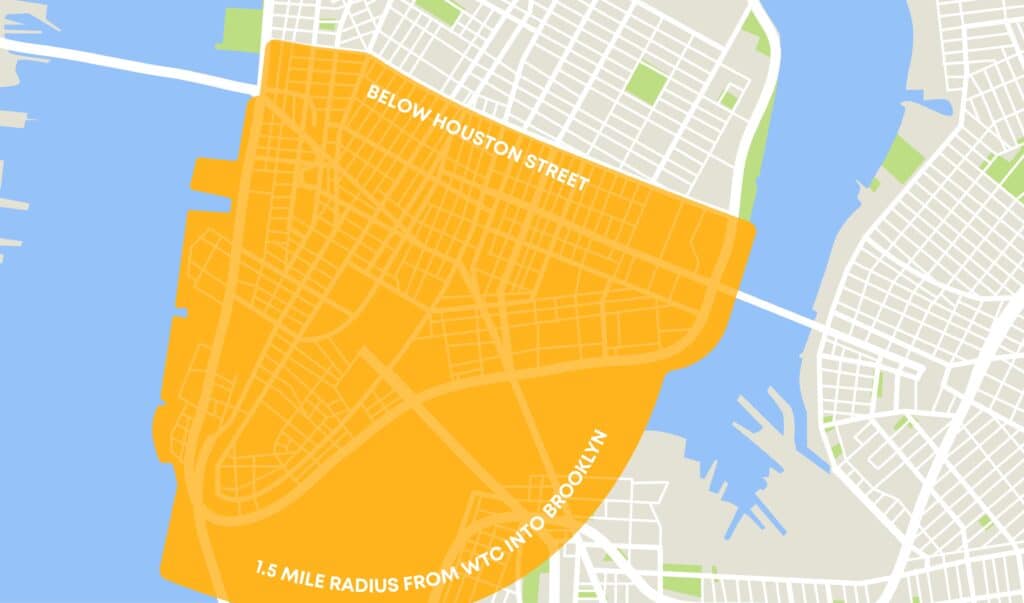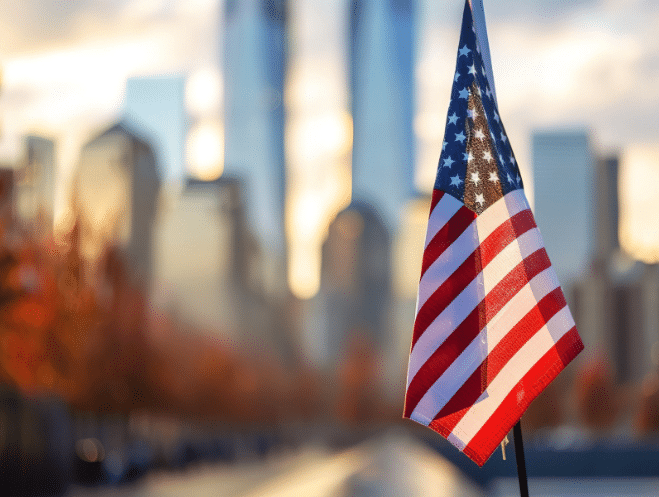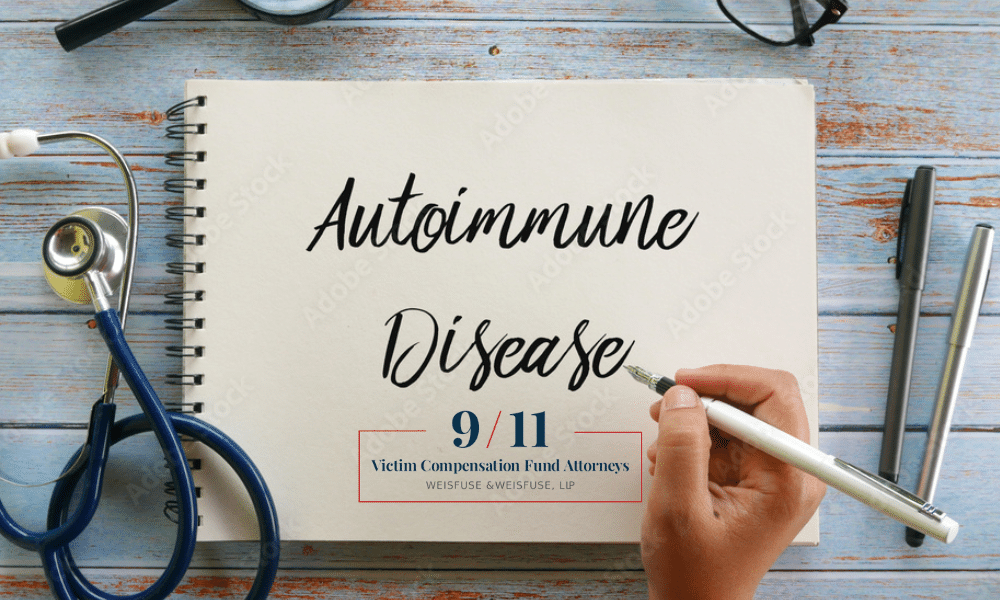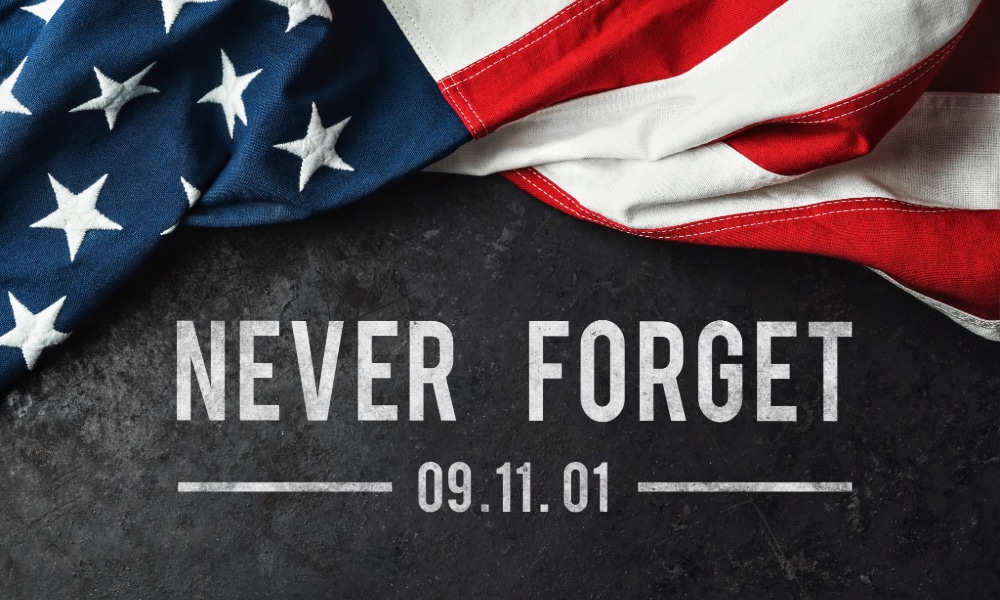Among the many pivotal events that Americans have endured since the dawn of the 21st century, two stand out: the September 11th terrorist attacks, and the COVID epidemic. COVID (coronavirus) has claimed the lives of more than 1 million people in the U.S. since the first victim perished as early as January 2020. Nearly 3,000 souls lost their lives on 9/11. And according to the World Trade Center Health Program, 3,496 deaths have been attributed to a variety of diseases related to the attack’s aftermath as of September 2021.
Today, many more responders and survivors of the WTC attacks suffer from chronic illnesses caused by 9/11. These chronic conditions have a greater likelihood of making them more susceptible to COVID infections and the potential for its long-term effects.
What is post-acute COVID-19 syndrome?
Post-acute COVID-19 syndrome is a condition “characterized by the persistence of clinical symptoms beyond four weeks from the onset of acute symptoms.” What is known as “long term COVID” includes symptoms such as:
- Tiredness/fatigue
- Dyspnea (shortness of breath)
- Persistent loss of taste or smell
- Dizziness
- Muscle pain
- Joint pain
- Chronic cough
- Palpitations (a noticeably rapid, strong, or irregular heartbeat)
- Low-grade fever
- Headaches
This syndrome may be either subacute/persistent (lasting up to 12 weeks from the initial COVID episode) or chronic (lasting more than 12 weeks but not attributable to another diagnosis). In either case, post-acute COVID-19 syndrome is an increasingly recognized complication of COVID-19.
What is the relationship between long-term COVID and 9/11-related illnesses and medical conditions?
It has long been known that people with certain conditions are more likely to be susceptible to getting a COVID infection. This includes seniors (particularly those aged 65 or older); people with lung problems such as moderate to severe asthma, chronic obstructive pulmonary disease (COPD) or cystic fibrosis; heart diseases including coronary artery disease; chronic liver or kidney disease; diabetes; obesity; weakened immune systems caused by HIV/AIDS or cancer treatment—even those with mental health issues or Downs syndrome.
Chronic illnesses caused after 9/11 exposure to the toxic dust cloud from the WTC collapse has left many survivors and responders highly susceptible to long-term COVID complications. A study conducted by Stony Brook World Trade Center Health Program clinicians found that “a number of existing chronic conditions appeared to predispose the patients to Covid-19-related severity, and/or were associated with long-term Covid sequelae (conditions which are the consequence of a previous disease or injury).”
This study was based on data collected from 1280 WTC 9/11 responders: “The individuals who served our country in the aftermath of the attacks on the World Trade Center (WTC) following the attacks of 11 September 2001 have, since then, been diagnosed with a number of conditions as a result of their exposures. In the present study, we sought to determine whether these conditions were risk factors for increased COVID-19 disease severity…with complete information on health outcomes prior to and following COVID-19 infection.”
The study further showed that “increased COVID-19 illness severity and the presence of post-acute COVID-19 sequelae may be more common in WTC responders with chronic diseases than in those responders without chronic disease processes resulting from exposures at the WTC disaster.”
Chronic 9/11 conditions associated with long COVID among the study participants included:
- 60 percent had previously diagnosed upper respiratory disease (URD) which may have involved asthma, COPD, interstitial lung disease and other 9/11-related respiratory conditions
- 49 percent had gastroesophageal reflux disease (GERD)
- 35 percent had obstructive airway disease (OAD)
- 20 percent had “concomitant psychiatric disease,” primarily major depressive disorders; but may also include panic disorder, anxiety disorder or post-traumatic stress disorder (PTSD)
The study included those with a “high prevalence of OAD and depression, due to their exposures at the World Trade Center disaster.” It further stated that COVID severity is “independently associated” with certain populations, including older people and those of Black heritage.
Is COVID-19 among the conditions covered by the World Trade Center Health Program?
COVID is not a covered condition per se. If comorbidity exists, it may be part of a treatment plan with an existing 9/11-related medical condition as a medically associated health condition. Covered conditions include many types of cancers (including those of the respiratory system such as lung or bronchus cancer), and airway and digestive disorders, such as GERD, asthma, reactive airway dysfunction syndrome (RADS), or chronic respiratory disorder.
Those who have been exposed to the 9/11 toxic dust and were at or near Ground Zero on 9/11, who worked or volunteered for cleanup or who worked, lived, attended school, daycare or adult daycare within the New York City Disaster Area between September 1, 2001 and July 31, 2002 may be eligible for health benefits through the Program. Even those who do not feel ill are encouraged to enroll, as many conditions (especially cancers) may take years or even decades to become evident.
In addition to having access to medically necessary treatment, including medications, through WTC-affiliated clinic, healthcare provider, and pharmacy, membership may include eligibility for financial compensation through the Victim Compensation Fund (VCF). It is important to note that the VCF is a separate entity from the World Trade Center Health Program with its own set of regulations. In order to get compensation, the survivor or responder must have a certified 9/11-related medical condition or be the personal representative of a deceased individual.
In cases where a family member has passed away and the cause of death is listed as COVID, the VCF may pay the claim provided that there was an underlying, 9/11-related medical condition.
The September 11th Victim Compensation Fund compensation attorneys at Weisfuse & Weisfuse, LLP have both the passion and experience to help survivors get the benefits they need
From the short few days after 9/11, we have helped victims of the attacks understand their rights and get the medical and financial benefits they need to heal and move forward. To learn more about how we can help you, please call us at 332-239-1688 or contact us online to schedule a free initial consultation to discuss your needs.
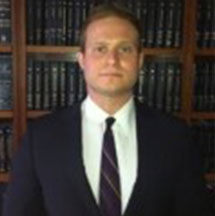
About Jason Weisfuse –
9/11 Victim Compensation Fund Attorney
About Jason Weisfuse –
9/11 Victim Compensation Fund Attorney
Jason E. Weisfuse is a seasoned 9/11 cancer attorney and managing partner at Weisfuse & Weisfuse, LLP, a New York City-based law firm dedicated to representing individuals affected by the September 11th attacks. Since the establishment of the September 11th Victim Compensation Fund (VCF), Jason has been instrumental in assisting first responders, survivors, and families in securing the compensation and medical benefits they deserve.
With a Juris Doctor from New York Law School (2009), Jason brings extensive experience regarding the 9/11 Victim Compensation Fund to his practice. His deep understanding of the VCF and the World Trade Center Health Program (WTCHP) has enabled him to navigate complex claims processes effectively, resulting in substantial awards for his clients.
Jason’s commitment to the victims in the 9/11 community is evident through his active involvement in professional organizations such as the New York State Trial Lawyers Association and the American Association for Justice. He has also contributed to legal discourse with publications in the New York Law Journal, reflecting his dedication to legal excellence and advocacy.
At Weisfuse & Weisfuse, LLP, Jason continues to provide compassionate and knowledgeable representation, ensuring that those affected by 9/11 receive the support and compensation they are entitled to.


